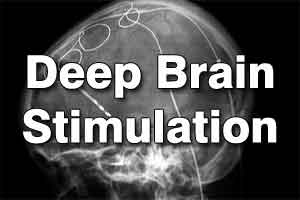- Home
- Editorial
- News
- Practice Guidelines
- Anesthesiology Guidelines
- Cancer Guidelines
- Cardiac Sciences Guidelines
- Critical Care Guidelines
- Dentistry Guidelines
- Dermatology Guidelines
- Diabetes and Endo Guidelines
- Diagnostics Guidelines
- ENT Guidelines
- Featured Practice Guidelines
- Gastroenterology Guidelines
- Geriatrics Guidelines
- Medicine Guidelines
- Nephrology Guidelines
- Neurosciences Guidelines
- Obs and Gynae Guidelines
- Ophthalmology Guidelines
- Orthopaedics Guidelines
- Paediatrics Guidelines
- Psychiatry Guidelines
- Pulmonology Guidelines
- Radiology Guidelines
- Surgery Guidelines
- Urology Guidelines
Deep brain stimulation significantly improves fatigue symptoms in multiple sclerosis

Deep brain stimulation has been used in the diagnosis and treatment of a range of neurological and psychiatric disorders. A team of researchers, led by Prof. Dr. Friedemann Paul of the NeuroCure Clinical Research Center (NCRC), has shown that dTMS, using the proprietary H-coil, a technology that allows brain stimulation three times deeper than that of standard TMS, is capable of producing significant improvements in fatigue symptoms.A problem commonly encountered in patients of MS is severe fatigue which impacts on person's work and social life and a large percentage of people with MS rate it as one of the most bothersome symptoms of the disease.
The severity of MS-associated symptoms was assessed using a standardized questionnaire and the Fatigue Severity Scale (FSS). 33 study participants with fatigue received thrice-weekly sessions of dTMS for a duration of six weeks; this involves a stimulation H-coil being placed above the patient's head, which generates a magnetic field that influences nerve activity and neural circuits in the brain. A control group received a sham treatment.
"We observed no serious side effects in patients treated with dTMS, and it is, therefore, worth stressing the tolerability of this noninvasive electrophysiological technique," says Prof. Paul, the study's principal investigator. Further, it is also worth noting that the treatment was delivered using a new type of H-coil, which had been developed specifically for use in this study. This coil permits the targeted stimulation of areas of the brain which, according to the latest research, play a major role in MS-associated fatigue. A follow-up study involving a larger number of participants is being planned. This is intended to verify the efficacy of this treatment method, and to help ensure the implementation of dTMS for MS-associated fatigue into routine clinical practice. "We are excited about the collaboration between Prof. Dr. Friedemann Paul and his team at Charité's NeuroCure and Brainsway for studying the use of our patented Deep TMS technology for the benefit of MS patients, a new neurological field for us. These promising results of relieving the very hard to treat fatigue symptoms in MS, brings a new hope for being able to provide a solution for the many patients who need it." Says Ronen Segal, CTO of Brainsway LTD.
For more details click on the link: http://dx.doi.org/10.1212/nxi.0000000000000423

Disclaimer: This site is primarily intended for healthcare professionals. Any content/information on this website does not replace the advice of medical and/or health professionals and should not be construed as medical/diagnostic advice/endorsement or prescription. Use of this site is subject to our terms of use, privacy policy, advertisement policy. © 2020 Minerva Medical Treatment Pvt Ltd